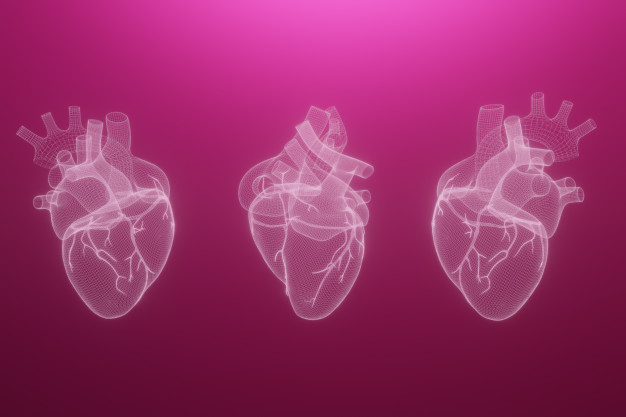Coronary Artery Bypass Grafting Cost in Delhi
Coronary Artery Bypass Grafting (CABG), often known as heart bypass surgery, is a cardiac treatment performed to treat constricted or blocked coronary arteries. This surgery improves heart health in general and lowers the risk of heart attacks. This is a commonly performed procedure that has minimal risks.
Get Cost of Coronary Artery Bypass Grafting in Delhi
Top Doctors for Coronary Artery Bypass Grafting in Delhi
MBBS, MS - Surgery, PhD - Cardiovascular Surgery
Chairman - Cardiac Surgery
41 Years Of Experience, 3 Awards
Cardiac Surgery
MBBS, MD - General Medicine, DM - Cardiology
Senior Consultant - Cardiology
29 Years Of Experience,
Cardiology
MBBS, MD - Internal Medicine, DNB - Cardiology
Senior Consultant - Cardiology
15 Years Of Experience, 2 Awards
Cardiology
MBBS, MS - General Surgery, MCh - Thoracic Surgery
Honorary Senior Consultant - Cardiothoracic and Vascular Surgery
40 Years Of Experience, 1 Awards
Cardiac Surgery
MBBS, MS - Surgery, MCh - Cardio Thoracic and Vascular Surgery
Senior Consultant - Cardiac Surgery
31 Years Of Experience,
Cardiac Surgery
Coronary Artery Bypass Grafting Cost from trusted Hospitals in Delhi

Human Care Medical Charitable Trust, Adjoining MTNL Building, Delhi NCR, NCT Delhi, 110075, India
Multi Speciality Hospital

A Block, Shalimar Bagh, Delhi NCR, NCT Delhi, 110088
Multi Speciality Hospital

Near TV Tower, Wazirpur District Centre, Pitampura, Delhi NCR, NCT Delhi, 110034
Multi Speciality Hospital

Sector B, Pocket 1, Aruna Asaf Ali Marg, Vasant Kunj, Delhi NCR, NCT Delhi, 110070
Super Speciality Hospital

Meera Enclave ( Chowkhnadi), Near Keshopur, Sabzi Mandi, Delhi NCR, NCT Delhi, 110018, India
Multi Speciality Hospital
What is the average cost of Coronary Artery Bypass Grafting in Delhi?
The cost of Coronary Artery Bypass Grafting in starts from Rs. 2,30,000 which depends on multiple factors. The average cost of Coronary Artery Bypass Grafting in Delhi may range from Rs. 2,30,000 to Rs. 4,60,000.
Related Doctor Interview
Other Cities
Coronary Artery Bypass Grafting Cost in India Coronary Artery Bypass Grafting Cost in Mumbai Coronary Artery Bypass Grafting Cost in Hyderabad Coronary Artery Bypass Grafting Cost in Kolkata Coronary Artery Bypass Grafting Cost in Chennai Coronary Artery Bypass Grafting Cost in BangaloreFrequently Asked Questions
Q: After having a bypass, is it possible to lead a regular life? 
A: Patients who get CABG can, and frequently do, go on to lead long, healthy lives thereafter.
Q: Where is Open Heart Bypass Surgery performed? 
A: A surgical theatre or operation theatre is the place within a hospital campus where CABG takes place. After the surgery is complete, the patient is required to stay at the hospital for monitoring purposes. Surgeons use innovative technologies to perform the surgery.
Q: How is Open Heart Bypass Surgery(CABG) done? 
A: CABG is a safe yet complicated procedure. The purpose is to allow blood to reach the heart when coronary arteries get damaged or blocked. This is done by a grafting process. The doctor will use one of your healthy arteries in place of diseased arteries.
Q: What is the duration of bypass surgery? 
A: The average length of a coronary artery bypass graft procedure is three to six hours.
Q: What distinguishes bypass surgery from open heart surgery? 
A: The heart may or may not need to be opened during open-heart surgery. Surgery on other areas of the chest can be necessary. One kind of open-heart surgery is bypass surgery. Others might include cardiac transplants and coronary angioplasty, among others.
Q: Does a bypass surgery carry a high risk? 
A: Short-term hazards associated with bypass surgery include heart attack, stroke, kidney issues, and even death.
Q: What is Open Heart Bypass Surgery? 
A: An open-heart surgery refers to any heart surgery where the chest is cut open for the procedure. Open heart bypass surgery is the most common type of heart surgery performed on adults. It is also known as Coronary Artery Bypass Grafting (CABG).
Q: Who performs Open Heart Bypass Surgery? 
A: Cardiologists are the doctors who diagnose and treat diseases of the heart. Your cardiologist may refer you to a cardiac surgeon for this surgery. The team of experts conducting Open Heart Bypass Surgery shall include cardiac surgeons and nursing staff.
Q: What is the bypass operation success rate? 
A: A total of 500,000 coronary bypass surgeries are carried out annually, with a nearly 98 percent success rate.




